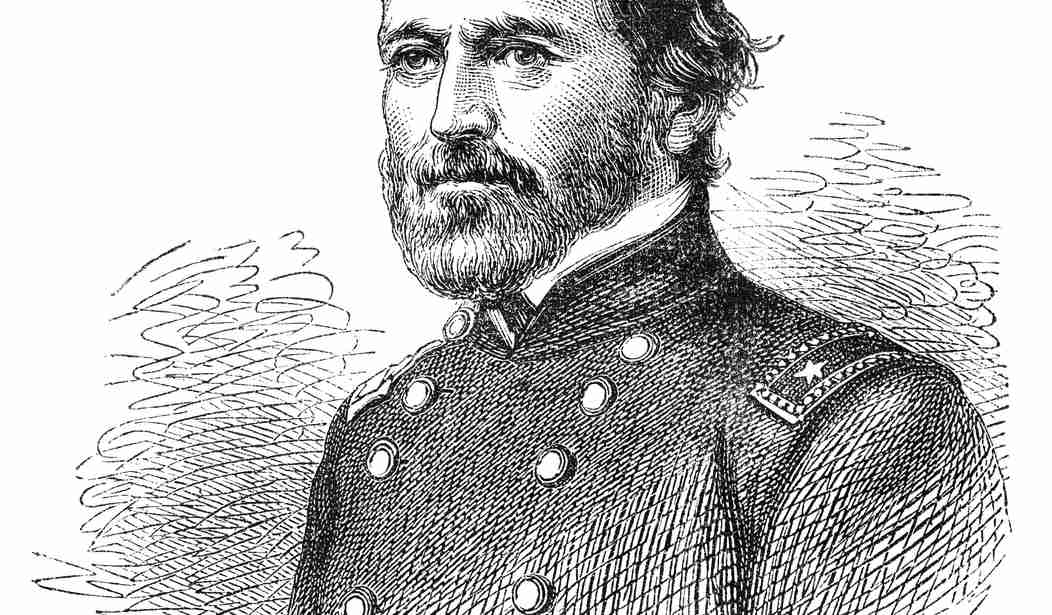With the Compromised Media™ now in the midst of a feeding frenzy as, like hounds to the stag, they seek to bring down the president of the United States by any means necessary, a quick and timely look at how Ulysses S. Grant felt about and handled the media of his day. First, a general observation on the press by Grant, shortly after being appointed by President Lincoln as the commander of the Union forces:
In the East the opposing forces stood in substantially the same relations towards each other as three years before, or when the war began; they were both between the Federal and Confederate capitals. It is true, footholds had been secured by us on the sea-coast, in Virginia and North Carolina, but, beyond that, no substantial advantage had been gained by either side. Battles had been fought of as great severity as had ever been known in war, over ground from the James River and Chickahominy, near Richmond, to Gettysburg and Chambersburg, in Pennsylvania, with indecisive results, sometimes favorable to the National army, sometimes to the Confederate army; but in every instance, I believe, claimed as victories for the South by the Southern press if not by the Southern generals. The Northern press, as a whole, did not discourage these claims; a portion of it always magnified rebel success and belittled ours, while another portion, most sincerely earnest in their desire for the preservation of the Union and the overwhelming success of the Federal armies, would nevertheless generally express dissatisfaction what whatever victories were gained because they were not more complete.
Well, plus ça change, eh? A little later, Grant tells this story about a “reporter” he unwisely allowed into his camp:
There was a certain incident connected with the Wilderness campaign of which it may not be out of place to speak; and to avoid a digression further on I will mention it here.
A few days before my departure from Culpeper the Honorable E. B. Washburne visited me there, and remained with my headquarters for some distance south, through the battle in the Wilderness and, I think, to Spottsylvania. He was accompanied by a Mr. Swinton, whom he presented as a literary gentleman who wished to accompany the army with a view of writing a history of the war when it was over. He assured me—and I have no doubt Swinton gave him the assurance—that he was not present as a correspondent of the press. I expressed an entire willingness to have him (Swinton) accompany the army, and would have allowed him to do so as a correspondent, restricted, however, in the character of the information he could give. We received Richmond papers with about as much regularity as if there had been no war, and knew that our papers were received with equal regularity by the Confederates. It was desirable, therefore, that correspondents should not be privileged spies of the enemy within our lines.
Probably Mr. Swinton expected to be an invited guest at my headquarters, and was disappointed that he was not asked to become so. At all events he was not invited, and soon I found that he was corresponding with some paper (I have now forgotten which one), thus violating his word either expressed or implied. He knew of the assurance Washburne had given as to the character of his mission. I never saw the man from the day of our introduction to the present that I recollect. He accompanied us, however, for a time at least.
The second night after crossing the Rapidan (the night of the 5th of May) Colonel W. R. Rowley, of my staff, was acting as night officer at my headquarters. A short time before midnight I gave him verbal instructions for the night. Three days later I read in a Richmond paper a verbatim report of these instructions.
A few nights still later (after the first, and possibly after the second, day’s fighting in the Wilderness) General Meade came to my tent for consultation, bringing with him some of his staff officers. Both his staff and mine retired to the camp-fire some yards in front of the tent, thinking our conversation should be private. There was a stump a little to one side, and between the front of the tent and camp-fire. One of my staff, Colonel T. S. Bowers, saw what he took to be a man seated on the ground and leaning against the stump, listening to the conversation between Meade and myself. He called the attention of Colonel Rowley to it. The latter immediately took the man by the shoulder and asked him, in language more forcible than polite, what he was doing there. The man proved to be Swinton, the “historian,” and his replies to the question were evasive and unsatisfactory, and he was warned against further eaves-dropping.
The next I heard of Mr. Swinton was at Cold Harbor. General Meade came to my headquarters saying that General Burnside had arrested Swinton, who at some previous time had given great offence, and had ordered him to be shot that afternoon. I promptly ordered the prisoner to be released, but that he must be expelled from the lines of the army not to return again on pain of punishment.
Grant, that old softy, should have listened to Burnside. We don’t shoot anybody for espionage any more, but why the White House allows reporters who openly and publicly despise the president and his administration into 1600 Pennsylvania Avenue is beyond me.









Join the conversation as a VIP Member